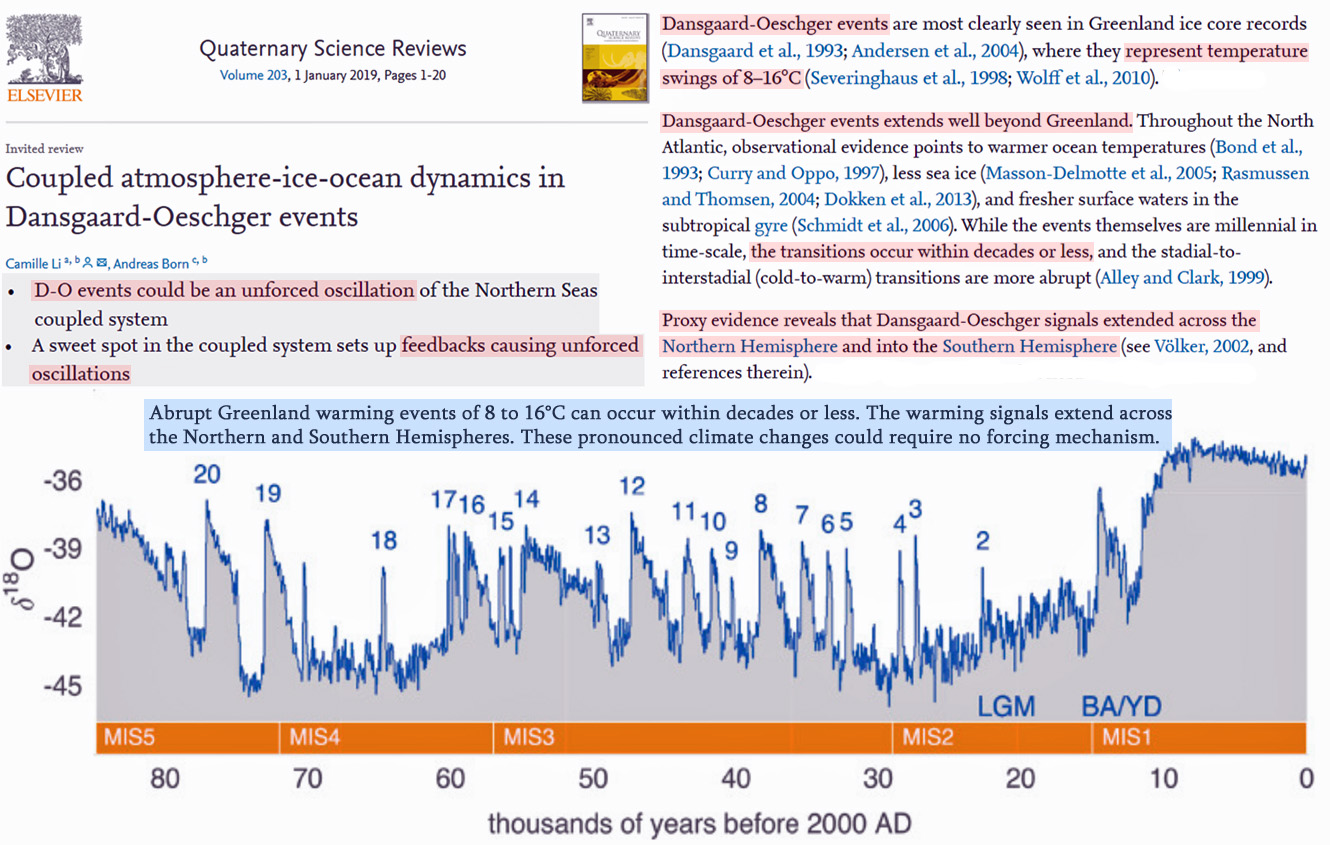New Study Shows CO2 Changes Lag Decadal-Scale Warming By ~1000 Years In The Northern Hemisphere
NoTricksZone: Not here to worship what i… / by Kenneth Richard
From about 80,000 to 20,000 years ago, Greenland temperatures abruptly warmed by about 10°C in just a few decades on at least 20 occasions. And then, about 870 to 1,500 years later, CO2 rose.
Li and Born (2019) document 8-16°C climate warmings (Dansgaard-Oeschger events) in Greenland that extended to both hemispheres between about 80 and 20 thousand years ago. (Though global in scope, temperature changes were less pronounced outside Greenland.)
These abrupt warmings occurred within decades (or less). It has been suggested the warm-ups may have required no external forcing, as they’re considered an “unforced oscillation”.

Image Source: Li and Born (2019)
A new study (Shin et al., 2020) suggests the about 1,000 years after these warming events occurred, CO2 concentrations rose.
Despite the millennial-scale duration of this lag relative to the decadal-scale temperature changes, there are many who believe CO2 changes are a driver of warming.


